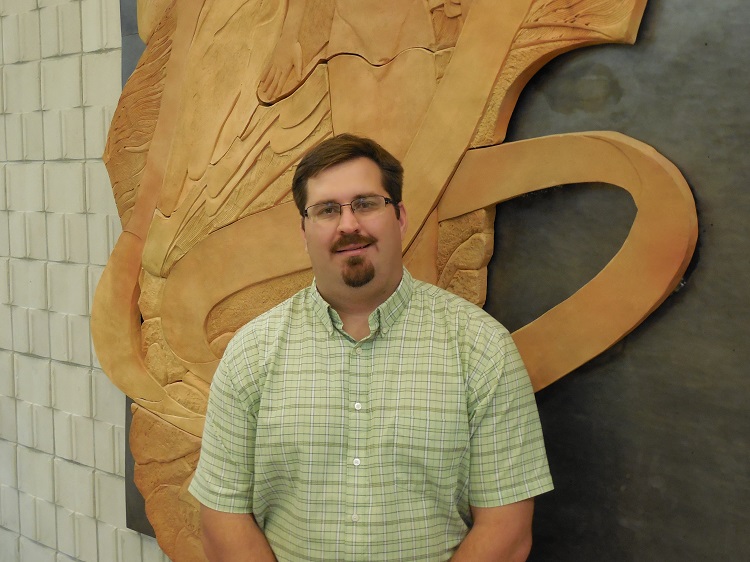
Trenton Franz, assistant professor of hydrogeophysics, will present "Investigating Ecosystems Through a New Lens: Opportunities and Challenges Using Cosmic-ray Neutron Detectors" at 3:30 p.m., Nov. 5 in the Hardin Hall auditorium (room 107). The seminar is free and open to the public.
The recently developed cosmic-ray neutron method for measuring the mass exchange of hydrogen over a horizontal footprint of hectometers and a depth of decimeters is an exciting new tool to investigate how ecosystem scale water, energy, and biogeochemical cycles function. While the probe was originally developed for measurements of soil moisture, recent work has shown the potential to quantify smaller pools of hydrogen inside the support volume such as biomass. Here I will present a general overview of the cosmic-ray neutron method, highlight some recent work from various ecosystems around the globe, and discuss future opportunities to better understand ecosystem scale water, energy, and biogeochemical cycles. In particular, one exciting opportunity is the potential for mobile surveys from a vehicle or low flying aircraft. The mobile surveys offer a critical new tool for helping better manage water resources in agroecosystems given the rising demand for food.
Franz was born in Fort Collins, Colorado. After high school, he attended the University of Wyoming in order to play football, where he helped lead the Cowboys to a 24-21 victory over UCLA in the 2004 Las Vegas Bowl. Franz graduated from the University of Wyoming in 2004 with a BS in Civil Engineering and 2005 with a MS. In September 2005, Franz started at Princeton University where he completed an MS in Civil and Environmental Engineering in 2007 and a Ph.D. in 2011. The field work for Franz's dissertation, "Characterizing Dryland Surface Hydrological Dynamics Using Ecohydrological Modeling and Geophysical Observations," was completed over six different trips to central Kenya where he worked closely with the Laikipia Maasai. In December 2010, Franz went to the University of Arizona to work on the COSMOS project as a postdoc. As a postdoc, he visited 35 different states installing cosmic-ray neutron probes. In September 2013, Franz joined the University of Nebraska-Lincoln faculty as an assistant professor of hydrogeophysics in the School of Natural Resources.
More details at: http://go.unl.edu/y8s8